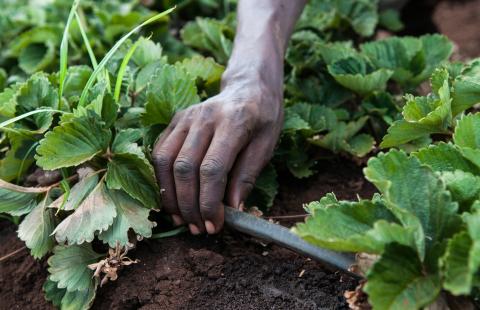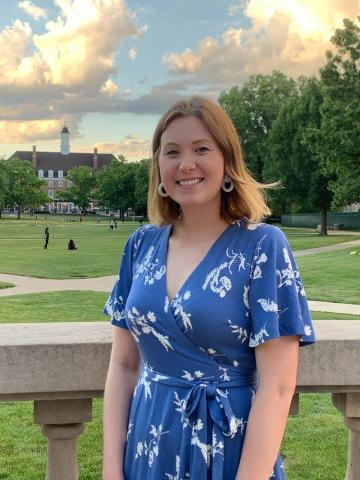The National Clean Plant Network (NCPN) is in charge of providing U.S. growers with an important source of safe and sustainable plant material. CEOS's Shadi Attalah and a team of researchers undertook an economic study on the importance of the NCPN’s use of pathogen-tested foundation plant stocks in safeguarding specialty crop varieties in the United States. Shadi and other agricultural economists partnered with plant pathologists, extension educators, specialty crop growers and regulators for the study to investigate the impacts of certain diseases caused by the graft-transferrable pathogens and to estimate the return on investment of the NCPN’s work in helping to mitigate those diseases. Their findings reinforce incentives for the NCPN to continue to use clean planting material, quantify the benefits of NCPN centers, aid the development of disease management solutions that are not only ecologically sound, but profit driven, and perhaps most importantly, produce solutions that are marketable to growers.
Economic studies reinforce efforts to safeguard specialty crops in the United States

Bryan Parthum Wins Graduate Teaching Award

The Paul A. Funk Awards are usually celebrated at a banquet every April. The pandemic shut down the banquet this year, so we want to recognize CEOS collaborators who would have been honored.
Bryan Parthum received the Louis V. Logeman Graduate Student Teaching Award, which honors graduate students that excel as teachers in the classroom. Over a period of four semesters, Bryan has proven himself an exceptionally talented and versatile instructor both in the traditional classroom and online. Whether building a new course for the department, interacting with undergraduate students inside and outside the classroom, or innovating an online course that resonates with freshmen and sophomores, the proof of Bryan’s commitment and effectiveness can be summed up in his evaluations from both students and faculty.
Hands in the soil for tech adoption

Population pressure is high and soils are degraded in many areas of Malawi. Along with co-authors Annemie Maertens and Vesall Nourani, CEOS's Hope Michelson evaluated an agricultural extension program working to promote technologies of integrated soil fertility management to build and preserve soil health in Malawi. The authors conclude that farmers that engage in hands-on, local farming experiences, including season-long, farmer-led demonstration crop cultivation, plan to adopt more components of new technologies. Specifically, they found:
Student studies how to improve air quality in McClean county

This summer did not slow down for Meghan Selip, a recent ACE graduate whose interest in sustainability economics led to an internship with CEOS. Meghan got to work with the Ecology Action Center in Normal, Illinois this summer where she studied ways to reduce greenhouse gas emissions in McLean County. Primarily, she focused on the costs and benefits of utilizing hybrid vehicles and tree planting to improve air quality and how to best implement these strategies. The results will be put into a project proposal and presented to local officials to help advise them on what would be the best option for the Bloomington-Normal community.
Meghan is currently pursuing her Masters in Agricultural and Applied Economics in the ACE Department and is a member of the Student Sustainability Committee at Illinois. She aspires to discover innovative solutions that are economically viable in environmental and food sustainability.
Illinois undergrad studies value of native plants on campus

Eric Zhang’s enthusiasm for research has only grown since he began his first research project his sophomore year, which eventually led him to work with CEOS’s Amy Ando. In 2019, Eric Zhang, a senior in ACE, was awarded the first CEOS undergraduate research mini-grant to study the value people have for native plant species in the University of Illinois community. The project gracefully blended Eric’s background in applied economics with his minor in horticulture. Eric used the grant money to design and conduct a survey that enabled him to collect data from respondents in the UIUC community. The analysis can help determine if the cost of converting landscapes to include native plants exceeds people’s willingness to pay (WTP) for them.